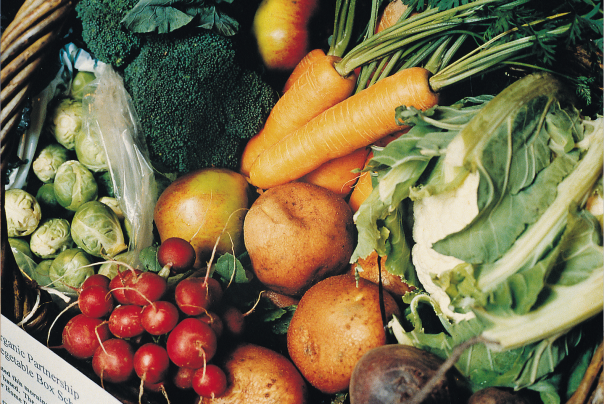
It's recommended that men have around 2,500 calories a day (10,500 kilojoules). Women should have around 2,000 calories a day (8,400 kilojoules).
An NHS spokesperson said: “If you eat or drink more than your body needs, you'll put on weight because the energy you do not use is stored as fat. If you eat and drink too little, you'll lose weight. You should also eat a wide range of foods to make sure you're getting a balanced diet and your body is receiving all the nutrients it needs. Most adults in the UK are eating more calories than they need and should eat fewer calories.”
Base your meals on higher fibre starchy carbohydrates: Starchy carbohydrates should make up just over a third of the food you eat. They include potatoes, bread, rice, pasta and cereals.
Eat lots of fruit & vegetables: It's recommended that you eat at least 5 portions of a variety of fruit and veg every day. They can be fresh, frozen, canned, dried or juiced.
Eat more fish: Fish is a good source of protein and contains many vitamins and minerals. Aim to eat at least 2 portions of fish a week, including at least 1 portion of oily fish.
Cut down on saturated fat and sugar: There are 2 main types of fat: saturated and unsaturated. Too much saturated fat can increase the amount of cholesterol in the blood, which increases your risk of developing heart disease.
Sugar: Regularly consuming foods and drinks high in sugar increases your risk of obesity and tooth decay.
Eat less salt: Adults and children aged 11 and over should eat no more than 6g of salt (about a teaspoonful) a day. Younger children should have even less.
Get active and be a healthy weight: As well as eating healthily, regular exercise may help reduce your risk of getting serious health conditions. It's also important for your overall health and wellbeing.
Do not get thirsty: You need to drink plenty of fluids to stop you getting dehydrated. The government recommends drinking 6 to 8 glasses every day. This is in addition to the fluid you get from the food you eat.
Do not skip breakfast: A healthy breakfast high in fibre and low in fat, sugar and salt can form part of a balanced diet, and can help you get the nutrients you need for good health.